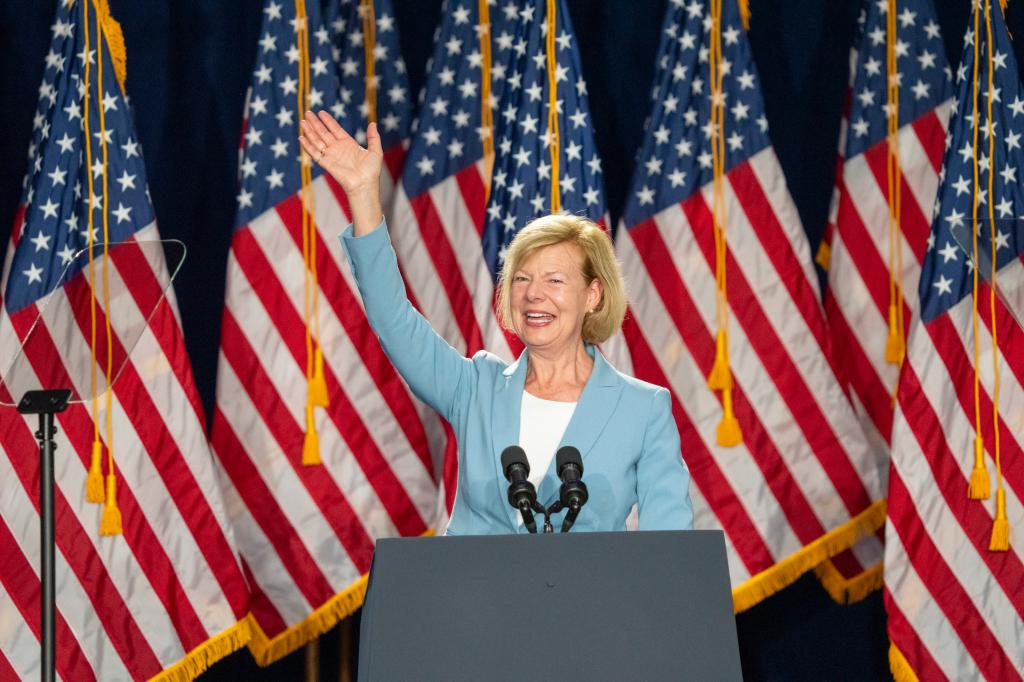The Wisconsin Farm Bureau Federation’s surprising endorsement of Democratic Senator Tammy Baldwin has caused a stir in the Dairy State, with some farmers preferring to support her Republican opponent, Eric Hovde, due to his business experience. Following the endorsement, two Wisconsin dairy organizations also backed Hovde, highlighting the importance of the agricultural industry in determining the Senate majority in 2025. The race between Baldwin and Hovde has tightened, with Cook Political Report changing its rating to Toss Up after an increase in GOP funding and internal polling analysis.
A political-action committee aligned with Senate Minority Leader Mitch McConnell plans to invest $17 million in the race, reflecting the importance of Wisconsin in the GOP’s efforts to regain control of the Senate. While Baldwin has gained support in rural counties with her industry projects, her Senate record has drawn criticism from some farmers who feel the Farm Bureau’s endorsement of the liberal senator does not align with conservative values. There is a concern that supporting Baldwin could imply approval of policies that contribute to inflation and the border crisis.
Support for Hovde among Wisconsin farmers is based on his business background as a venture capitalist and the belief that a career politician like Baldwin may not understand the challenges faced by the working class. Inflation rates have impacted production costs for farmers, leading to a desire for policies that prioritize farmers and reduce debt. Farmers are particularly drawn to Hovde’s stance on reintroducing whole milk in schools, focusing on pro-farmer policies, and addressing the rising costs for businesses.
Despite Baldwin’s initiatives supporting the dairy industry, some farmers feel that having another Democrat in the Senate could lead to increased spending and regulations that may further burden farmers and the nation. Concerns about Baldwin’s alignment with the liberal agenda and her voting record in support of Biden’s policies have led farmers to support Hovde, who is seen as bringing a business-oriented approach to Washington. There is a desire among farmers for a shift in the balance of power to benefit the agricultural sector and the overall economy.
Baldwin’s strategic political triangulation, where she balances dairy initiatives with other policy decisions, has contributed to her success in Wisconsin politics. The discrepancy between her positions on issues like WOTUS and whole milk in school cafeterias and the Farm Bureau’s stance has raised questions, with the bureau emphasizing the need for bipartisan support for agriculture. Baldwin’s opponent, Hovde, has been criticized for his ties to California, but Baldwin herself has received more support from donors in that state, despite Hovde’s pledge to promote pro-farmer policies and curb inflation and government regulations.
In conclusion, the race between Baldwin and Hovde in Wisconsin reflects the significance of the agricultural industry and the political dynamics at play in the state. Farmers are divided in their support for the candidates, with concerns about inflation, regulations, and the overall economy influencing their decisions. While Baldwin’s initiatives for the dairy industry have garnered support, some farmers are leaning towards Hovde for his business background and promises to prioritize pro-farmer policies. The outcome of this race could have implications not only for Wisconsin but also for the balance of power in the Senate.













